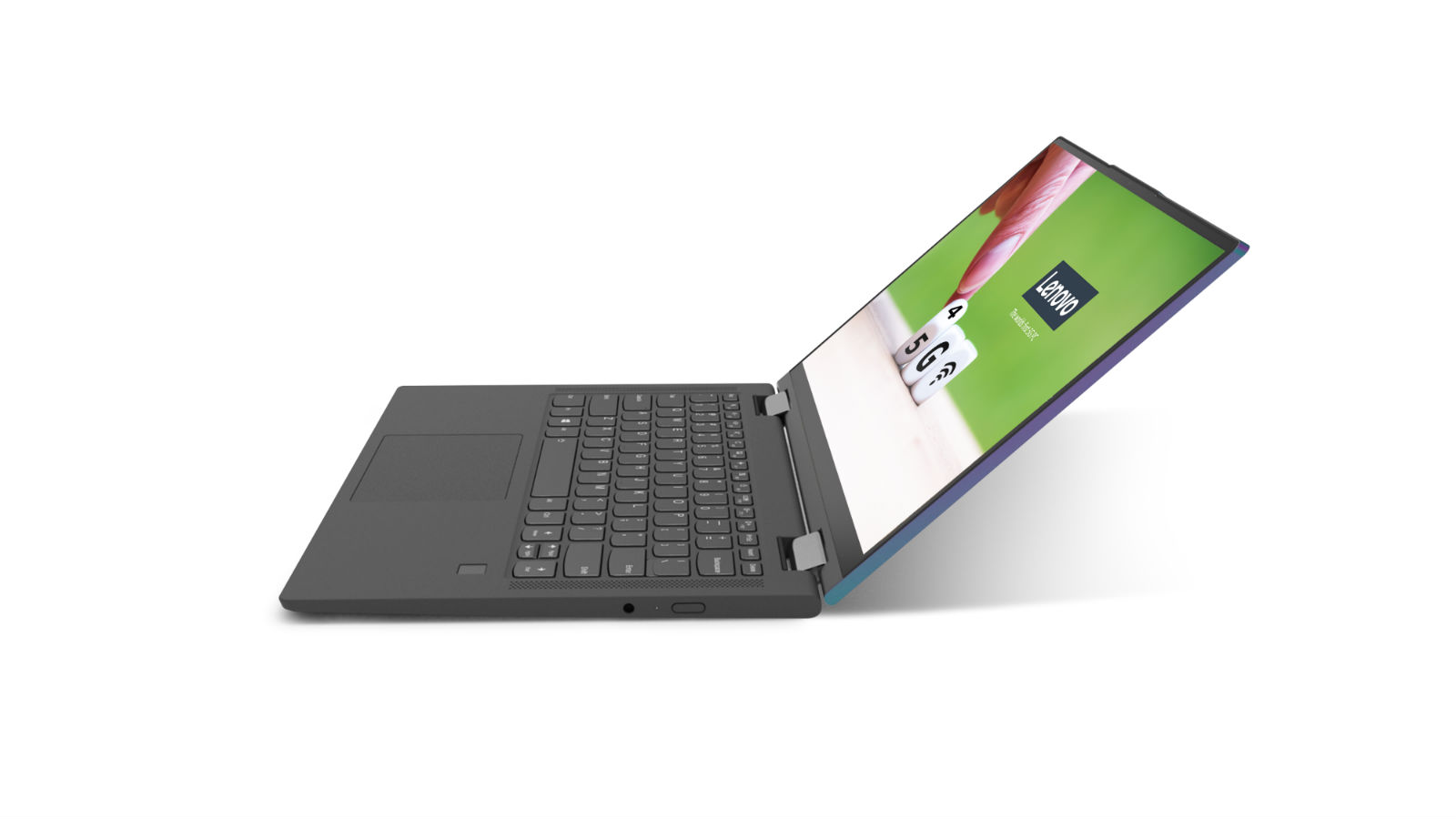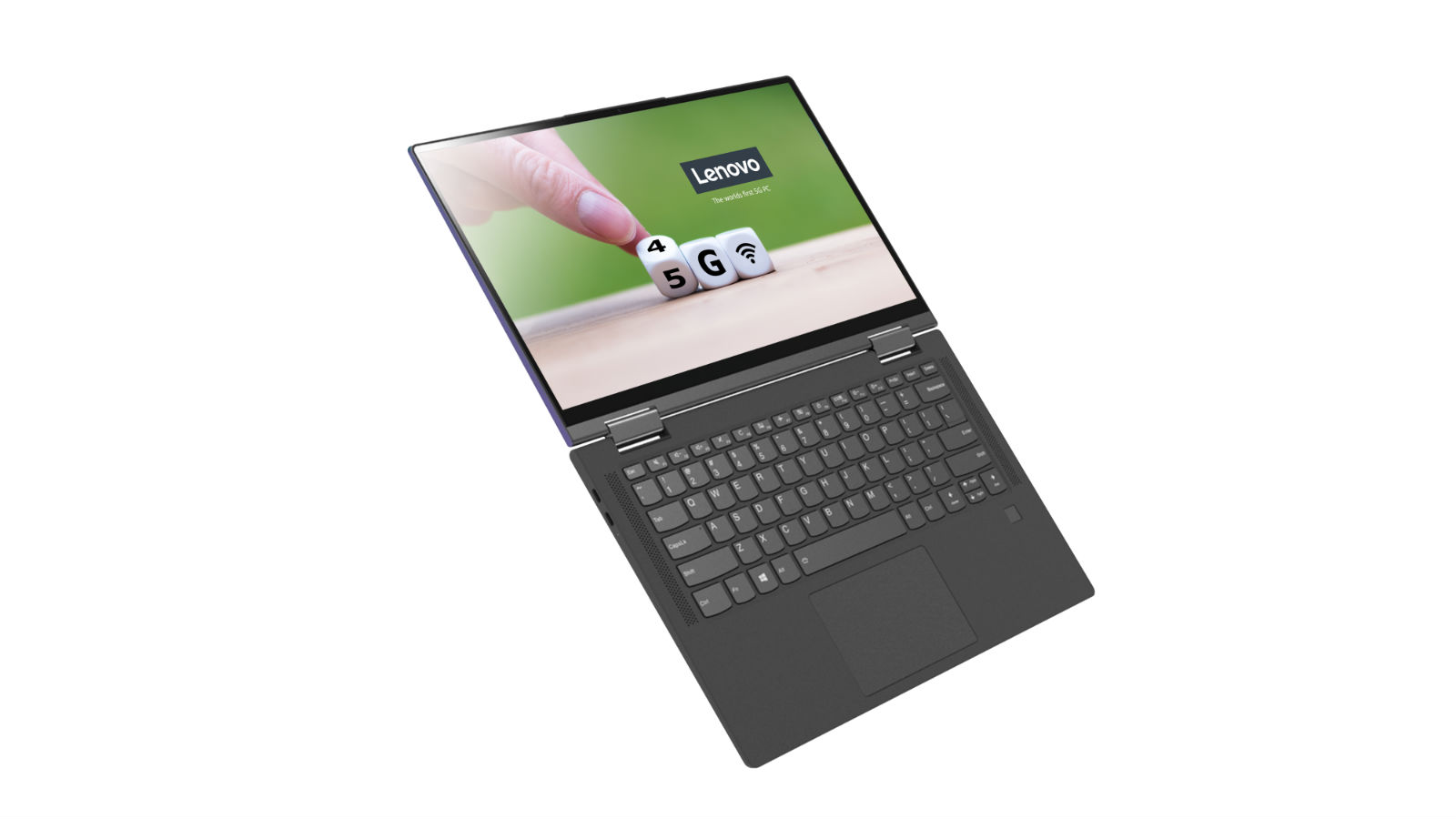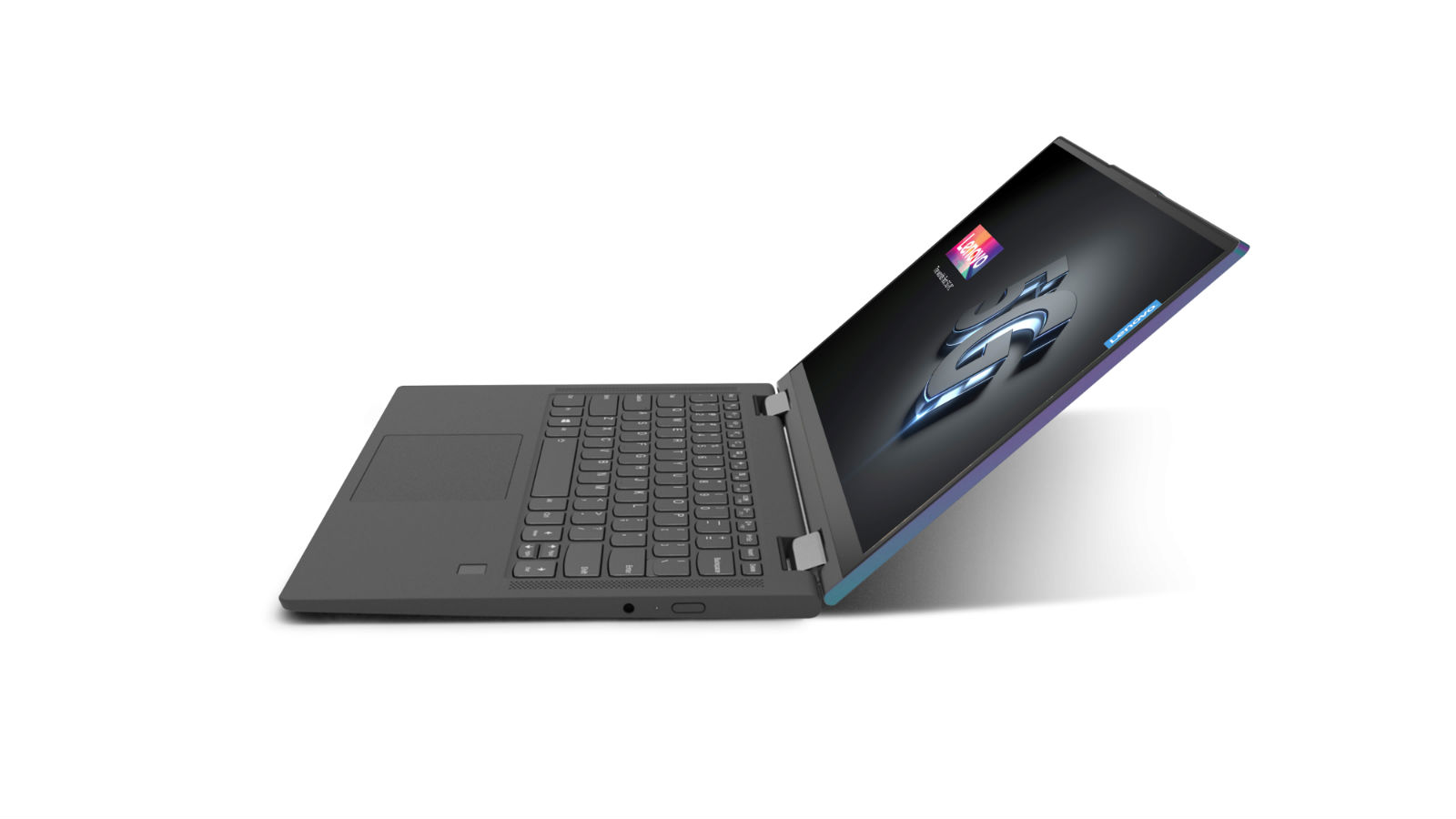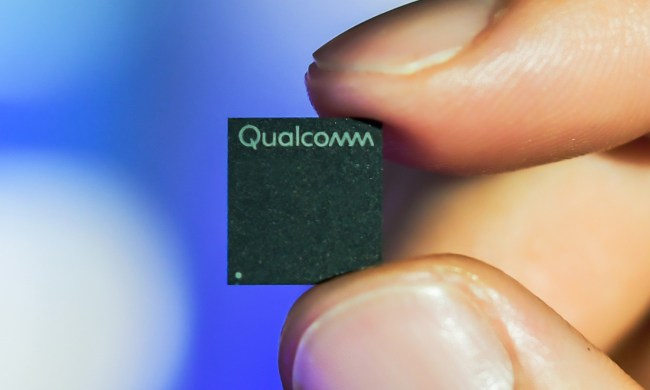Qualcomm announced a partnership with Lenovo to make a strong push in the 5G-connected PC space with Project Limitless. Unlike the other 5G laptops, Project Limitless will shun traditional x86 silicon from Intel and AMD in favor of Qualcomm’s Snapdragon system on a chip and Qualcomm’s 5G modem. Lenovo’s Project Limitless will be an Always-Connected PC that uses Qualcomm’s ARM-based Snapdragon 8cx processor and Snapdragon X55 5G modem. Though Project Limitless was announced at Computex in Taipei, the platform won’t be available for consumers until an unspecified date in 2020.
The laptop itself doesn’t look all that different from any of Lenovo’s other machines. It’s a convertible, 2-in-1 notebook with slim bezels and a standard Lenovo laptop. This particular model includes a bump above the screen where the webcam is located. Ports are fairly limited, just two USB-C ports on the left side and a headphone jack on the right. The real test will be in the 8cx’s performance, as no ARM-based Windows laptops have really been able to compete with x86 chips.
Qualcomm announced the Snapdragon 8cx processor late last year, and the Snapdragon X55 5G modem was introduced earlier this year. Project Limitless may be one of the first systems to debut with Qualcomm’s 7nm silicon, and always-on 5G connectivity will likely give Qualcomm’s Windows on ARM platform an edge against traditional laptops and notebooks from Intel.
“Our collaboration with Lenovo will deliver transformative PC user experiences for both consumers and the enterprise via the low-latency connectivity made possible by 5G,” Alex Katouzian, Qualcomm’s senior vice president and general manager of the mobile business unit, said in a prepared statement. “Bandwidth-intensive tasks that involve downloading and uploading large files over a wireless connection can be exponentially faster, thanks to the platform’s impressive performance and power efficiency, this will change the way users interact, connect and communicate with their computing devices.”
Details about Project Limitless are still light, but Lenovo’s platform should continue to deliver on the strengths of the Always-Connected PC ecosystem, including more than 20 hours of battery life, a thin and light design, and compatibility with Windows programs. For its part, Qualcomm and Lenovo stated multi-day battery life for Project Limitless. And coupled with 5G connectivity, users in 5G coverage areas can experience up to 10 times the performance of 4G LTE network speeds and even lower latency. In areas where 5G is not available, users can also fall back on 4G LTE networks.
Pricing details about Project Limitless were not disclosed. The device will compete in the same space as previous Always-Connected PC efforts, including the HP Envy x2 and Samsung Galaxy Book 2.






